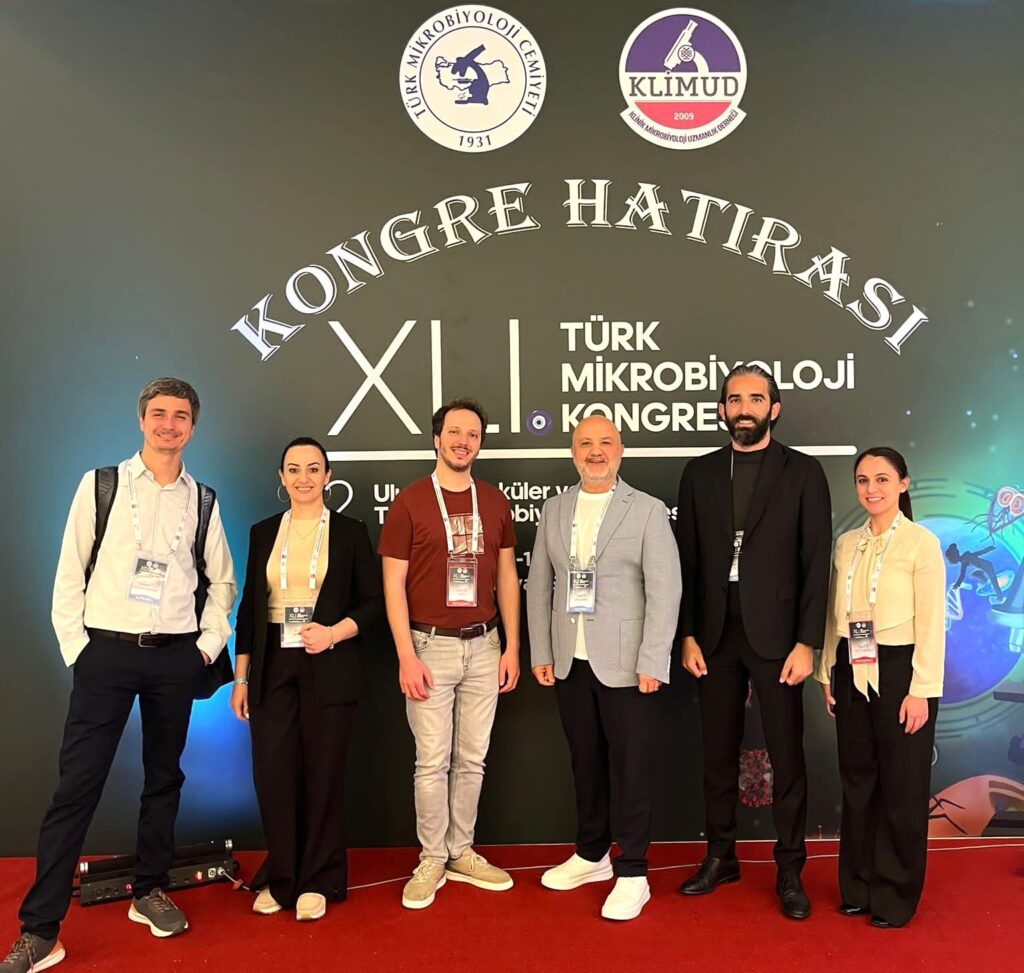
Near East University’s AI-based lecturer AI. Prof. DUX made a presentation for the first time at the “41st Turkish Microbiology Congress” held in Antalya. AI. Prof. DUX, who answered the questions of the participants instantly, made history in world science as the first artificial intelligence to make a scientific presentation at a congress.
Near East University researchers successfully represented the TRNC with their innovative studies at the 41st Turkish Microbiology Congress held in Antalya. While the presentations and multidisciplinary studies made at the congress, which was attended by scientists from many countries around the world, attracted great attention, Near East University’s AI-based lecturer AI. Prof. DUX made a presentation at a congress for the first time.
The “AI-based application that provides fast and accurate identification of tick species” developed in collaboration with Near East University DESAM Research Institute, Artificial Intelligence and Internet of Things International Research Center and Cyprus International University researchers attracted great attention. In the study conducted by Assoc. Cenk Serhan Özverel, Prof. Dr. Fadi Al-Turjman, Dr. Erdal Şanlıdağ, Assoc. Prof. Dr. Ayşe Şeyer Çağatan, Dr. İbrahim Ame and Prof. Dr. Tamer Şanlıdağ, three different artificial intelligence models were used in the identification of Hyalomma and Rhipicephalus species ticks: VGG16, ResNet50 and a special CNN model. The highest accuracy rate in the study was determined to be 99.57 percent in the VGG16 model, and this model achieved the most successful results in tick identification by minimizing human error. Supported by a user-friendly interface, this system has been transformed into an application for everyone to easily identify ticks without requiring expertise.
This innovative study was presented by AI-based academic AI. Prof. DUX developed at the Near East University at the 41st Turkish Microbiology Congress held in Antalya. During the presentation, the jury members and other participants showed great interest in the study and the questions posed were answered in detail by AI. Prof. DUX. The fact that the study and presentation were carried out by an artificial intelligence professor made this study a first in the field and was considered an important step in the fight against vector-borne diseases.
Infectious diseases and artificial intelligence-supported studies were presented
In addition, Prof. Dr. Emrah Ruh, a researcher at the Near East University, made a presentation in the “Microorganisms and Climate Changes” session on the effects of climate change on diseases transmitted by arthropods. Assoc. Prof. Dr. Nazife Sultanoğlu shared her study examining migration and travel-related infections with mathematical models in the “Migration and Travel Infections” session. Assoc. Prof. Dr. Cenk Serhan Özverel introduced his model that provides fast, easy and accurate diagnosis of the Mpox virus with artificial intelligence applications, while Dr. Çağlar Özketen presented his research assessing the risk of transmission of a new feline coronavirus variant (FCoV-23) to humans with the “in silico” modeling method.

